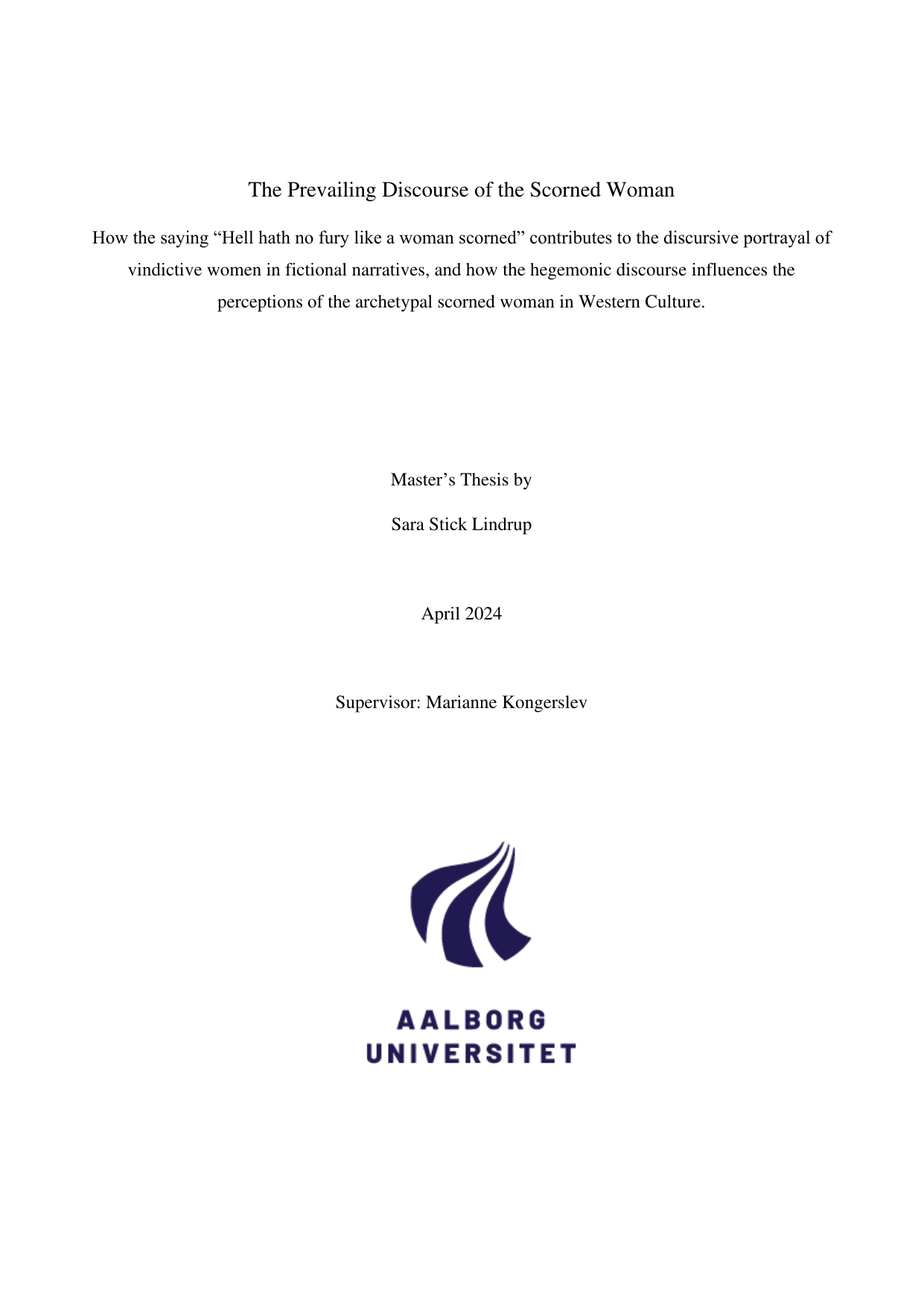
The Prevailing Discourse of the Scorned Woman: How the saying “Hell hath no fury like a woman scorned” contributes to the discursive portrayal of vindictive women in fictional narratives, and how the hegemonic discourse influences the perceptions of the archetypal scorned woman in Western Culture.
Author
Term
4. term
Education
Publication year
2024
Submitted on
2024-04-29
Pages
58
Abstract
“Hell hath no fury like a woman scorned” is an old saying originating from the British play The Mourning Bride (1697). The saying refers to the revenge a woman will wreak if her feelings are hurt, especially by her chosen lover. This thesis aims to prove that the saying and its produced discourse create a gendered bias in relation to women and revenge in Western culture. The discourse influences portrayals and perceptions of women considered vindictive, both in fiction and contemporary society. By examining the saying, its original formulation, its context, and the discourse it produces in Western society, the thesis attempts to form a basis for arguing that the discourse actively influences modern portrayals and perceptions of revenging females and the archetypal scorned woman. The theory used to establish a theoretical basis primarily focuses on critical discourse analysis (CDA), early revenge narratives and literature, gender, gender performativity, female emotion, and archetypes.
“Hell hath no fury like a woman scorned” is an old saying originating from the British play The Mourning Bride (1697). The saying refers to the revenge a woman will wreak if her feelings are hurt, especially by her chosen lover. This thesis aims to prove that the saying and its produced discourse create a gendered bias in relation to women and revenge in Western culture. The discourse influences portrayals and perceptions of women considered vindictive, both in fiction and contemporary society. By examining the saying, its original formulation, its context, and the discourse it produces in Western society, the thesis attempts to form a basis for arguing that the discourse actively influences modern portrayals and perceptions of revenging females and the archetypal scorned woman. The theory used to establish a theoretical basis primarily focuses on critical discourse analysis (CDA), early revenge narratives and literature, gender, gender performativity, female emotion, and archetypes.
Documents
